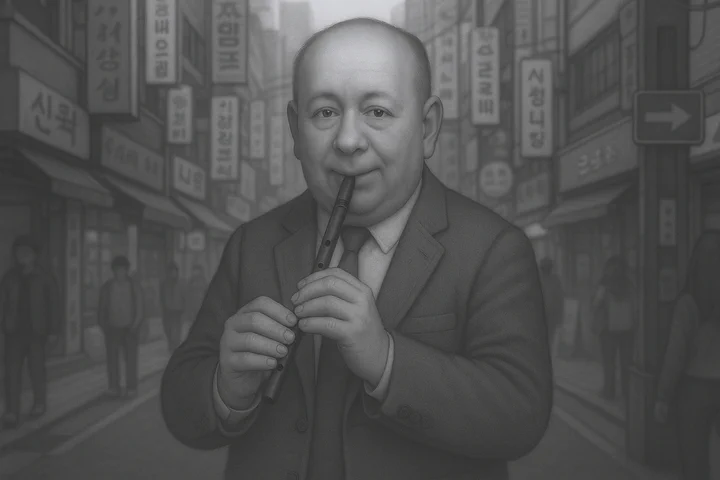South Korea needs a content strategy

It didn’t take long. Just minutes after it became clear that Lee Jae-myung won South Korea’s presidential election, American conservative social media lit up with a verdict: “RIP South Korea.” According to Laura Loomer: “the communists have taken over.”
It was viral, visceral—and dangerous. As of writing 1.9 million views.
Lee Jae-myung had barely begun celebrating his victory when he was slapped with the “communist” label by American right-wing influencers. Not analysts. Not diplomats. Not intelligence officials. Influencers.
This matters. Because those same influencers shape the media diet of Donald J. Trump. I’ve already written about the need for a new foreign media strategy but it needs repeating.
Time is running short - but no one will listen. It’s hard to listen when you’ve gotten by doing the same schtick with a clueless Washington for years and years.
The result: no coordinated media campaign; no miraculous great relationship for Lee Jae-myung; and one big suck-up payment to Trump from the Korean taxpayer.
South Korea’s most extreme conservatives share social media echo chambers alongside America’s most extreme conservatives. Interaction is low and largely one way - from Trumpworld to Korean conservative YouTube. When South Korea does leak into Trumpworld, it does so through the most extreme South Korean influencers.
In a rational diplomatic universe, South Korea’s new president would be preparing policy papers, appointing envoys, and outlining a five-year plan for strategic autonomy and alliance management. But Lee doesn’t live in that universe.
He lives in the Trump timeline.
And in this timeline, diplomacy isn’t conducted through cables—it’s conducted through content.
Trump doesn’t care what Korea’s National Assembly passes. He doesn’t care about joint statements or strategic partnerships. He cares what’s trending on social media, what his favorite talk show host just said, or which meme hits the conservative bloodstream.
Right now, Lee Jae-myung has already started losing the war.
To a certain corner of the American right, Lee has already been cast as a radical leftist, a socialist, or worse—a sympathizer with the North and with China. The facts don’t matter. The narrative has already been seeded.
And that’s a serious problem.
Because if Lee walks into his first interaction with Trump or his surrogates already branded as a “communist,” then he’s already lost half the battle. In Trumpworld, impressions matter more than facts—and bad impressions metastasize fast.
Here’s the hard truth: the U.S.-ROK alliance is no longer just about mutual interests or shared values. It’s about media optics.
If Lee wants to survive the next four years without being publicly humiliated, slapped with tariffs, or accused of undermining “freedom values,” he needs to respond with speed and savvy.
He needs a content strategy. And he needs it now!
That means flipping the script. That means shaping the narrative before Trumpworld cements its version. That means no more playing defense on policy—Lee’s team needs to play offense in the American media ecosystem.
Imagine this:
- A Fox News segment praising Lee’s support for U.S. veterans.
- A viral YouTube clip of Lee visiting a Korean War memorial and quoting Ronald Reagan.
- A tweetstorm showcasing Lee’s commitment to regional stability and containing Chinese influence.
- Think tank op-eds ghostwritten to frame Lee as a pragmatic reformer, not a radical.
- Sponsored interviews on conservative podcasts reframing Lee as a “jobs president,” tough on unions, and pro-market (yes, with spin).
This isn’t pandering. It’s survival.
Because if the only version of Lee available to Trump’s orbit is a scary caricature invented by Breitbart headlines and Rogan-adjacent rants, then no amount of actual diplomacy will matter.
The Trump presidency operates on vibes over verification.
South Korea can have the world’s best military alliance, the tightest economic interdependence, and the most aligned Indo-Pacific strategy—but if Trump feels like Korea is disloyal, disrespectful, or socialist? He’ll act accordingly.
We’ve seen this before. Trump nearly pulled U.S. troops out of Korea because he believed Seoul was “freeloading.” That wasn’t based on DoD assessments—it was based on cable news rants and viral outrage.
Lee Jae-myung cannot let himself become the next target.
So, here’s the strategy:
Treat Trump not like a president, but like a media consumer with nuclear codes. Understand his information diet, infiltrate his echo chamber, and feed him the story you want him to believe.
It’s not pretty. It’s not diplomatic. But it’s smart.
Trump doesn’t respond to foreign policy arguments. He responds to emotional resonance. Loyalty. Flattery. Familiarity. Applause lines.
In that world, South Korea isn’t a strategic ally. It’s a character on Trump’s personal reality show. And Lee Jae-myung has just been written in as the villain.
It’s time to change the script - it will dsoon be too late.
